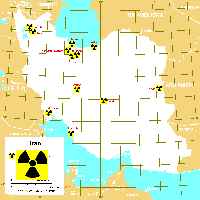The race taboo [Arab Racism]
The race taboo
The existence of racist attitudes within some Arab countries is often denied, resulting in scandalous displays of prejudice against certain ethnic groups.
Brian Whitaker
September 8, 2006 1:43 PM Printable version
Racism is a worldwide phenomenon. In some countries it's met with disapproval, in others with denial. The Arab countries, mostly, fall into the latter category. The A to Z of ethnic and religious groups in the Middle East embraces Alawites, Armenians, Assyrians, Baha'is, Berbers, Chaldeans, Copts, Druzes, Ibadis, Ismailis, Jews, Kurds, Maronites, Sahrawis, Tuareq, Turkmen, Yazidis and Zaidis (by no means an exhaustive list), and yet serious discussion of ethnic/religious diversity and its place in society is a long-standing taboo.
If the existence of non-Arab or non-Muslim groups is acknowledged at all, it is usually only to declare how wonderfully everyone gets along. The roots of this attitude are partly a result of colonial history and, up to a point, the reasons are understandable. The trouble is that anyone who questions this make-believe harmony and tries to address the issue openly and honestly is liable to be accused of spreading "fitna", or social discord.
And yet, you don't have to spend long in the Arab world to come across everyday examples of prejudice and discrimination - much of it linked to politics.
In Lebanon, for example, hostility towards the Damascus regime next door often rubs off on impoverished Syrians who cannot be blamed for their government's policies and are simply doing what any sensible person would do in the circumstances - trying to eke out a living. Here's something I wrote from Beirut in 2001:
"What ought to be a civilised debate has, at street level, taken a nasty turn. People complain that Syrian workers 'come here and take our jobs'. The Syrians 'flood our markets' with their cheap melons and tomatoes, and, as a result, are 'ruining our agriculture'. This is the familiar language of racism the world over. If Syrian workers could afford to buy houses in Lebanon they would no doubt also be accused of bringing down property values by their presence. "The other day a Syrian walked into the lobby of the hotel where I was staying in Beirut and inquired politely if there were any jobs. He had obviously done his best to look smart, but his clothes were so old and unfashionable that he could not possibly be mistaken for someone Lebanese. He was told, in the most abrupt terms, to get lost.
"One statistic constantly cited by the Lebanese to back up their complaints is that there are up to a million Syrian workers in Lebanon. If they all send a dollar a day back to Syria, that's a million dollars that Lebanon is 'losing' every day."
Syria, in turn, has its own abused minority - about 2 million Kurds (among a total population of more than 17 million), some 200,000 of whom are not even recognised as citizens. The grievances that Syrian Kurds speak of - lack of recognition for their language and culture, marginalisation and attempts to suppress their identity through dispersion and "Arabisation" - are familiar ones, shared with many other ethnic groups.
After several days of violence in the country's Kurdish region a couple of years ago, the Syrian embassy in Paris issued a statement denying that the conflict had anything to do with ethnic tensions and blaming politically motivated "troublemakers" instead.
In Egypt last December, police brutally attacked another unpopular group - Sudanese migrants. With batons and water cannon they set upon 2,000 men, women and children who had been camped near the UN refugee office in Cairo for three months. More than 20 migrants died in the mayhem as onlookers reportedly cheered.
In the Gulf states, where armies of poor guest workers do all the hard and dirty jobs, racial discrimination is more or less institutionalised. Such workers have few rights, and what rights they have in theory tend to be ignored in practice. Even if they spend a whole lifetime working in the country they know that the full privileges of citizenship will never be theirs.
Guest workers are dispensable and can be easily got rid of - sometimes for no other reason than a falling-out between their home country and the host country. During the 1970s and 1980s, large numbers of Yemeni workers flocked north to neighbouring Saudi Arabia and their remittances became a mainstay of Yemen's economy.
In 1990, when Saddam Hussein invaded Kuwait, Yemen happened to be a member of the UN security council and voted against an American-sponsored resolution to liberate Kuwait by force. The US responded by immediately cutting off Yemen's aid (declaring its security council vote "the most expensive 'no' in history") and Saudi Arabia - which by that stage had joined the alliance against Iraq - announced that all Yemenis working in the kingdom must find a Saudi sponsor or business partner or leave the country.
Almost none of them found sponsors or partners before the deadline, and within a few weeks some 750,000 people were bundled over the border into Yemen, many of them leaving behind most of their possessions. Those who owned property in Saudi Arabia were obliged to dispose of it quickly, which in most cases meant selling it for a fraction of its real worth.
The Saudis also took the opportunity to expel anyone else who had no passport and seemed to be a burden on the state: the blind, the infirm, beggars, plus a few thieves and drug addicts. All were dumped in Yemen.
Something similar is happening now in connection with 100,000 Africans of Chadian origin - most of whom, according to Human Rights Watch, were born in Saudi Arabia, have never lived in Chad and in many cases have never even visited it.
In a report that has so far attracted little attention from the world's media, the Washington-based rights group says that for the past two years the Saudi authorities have stopped renewing residence permits for Chadian citizens. In the past, permits were issued for one or two years at a time and the result is that nearly all Chadians in the kingdom now lack a valid permit. The stage is therefore set for a mass exodus.
In the meantime, Chadian children are being expelled from state schools on the grounds that their parents lack residence permits, Human Rights Watch says. The report continues:
"The cut-off of residency renewals has also endangered the lives of Chadians by compromising their access to emergency medical care. Two Chadians in Saudi Arabia told Human Rights Watch that government hospitals had refused to provide emergency treatment to relatives whose residency permits had not been renewed. "One Jeddah resident said that his aunt had died in his arms on March 1 at the entrance of the public King Abd al-Aziz hospital after suffering what he believed was a stroke. The hospital staff refused to admit her and told them to go to a private hospital or a pharmacy, on the grounds that her permit had expired. Another Chadian said that a hospital in Jeddah last year refused to admit his pregnant sister, and only relented when she was about to give birth at the front gate."
Human Rights Watch acknowledges that the Saudi government has a right to determine which foreigners are allowed into the country and how long they may stay, but not to discriminate against people based solely on their nationality.
It also argues that the long-term presence of Chadians in Saudi Arabia and their lack of ties to their country of origin ought to be "favourable grounds" for renewing their residence permits and adds:
"The Saudi government must provide primary education free of charge to all children living in the country regardless of their immigration status, in accordance with Saudi Arabia's obligations under the Convention of the Rights of the Child, to which it acceded in January 1996. It also must make emergency health care promptly available to all those who require it, without discrimination as to nationality or immigration status."
So what have the Chadians done to deserve this "send 'em home" campaign? The answer - or at least the pretext - is that they have been tarred with the brush of "terrorism". (Haven't we heard that one somewhere before?)
"Chadian nationals in Saudi Arabia told Human Rights Watch that the targeting of Chadians began after a Saudi counterterrorism operation in Mecca in November 2003 resulted in the arrest of a Chadian together with an Egyptian and four Saudis. "The vice-president of the government-approved National Society for Human Rights, Dr Mufleh al-Qahtani, told Human Rights Watch in June that the Chadian issue had a 'security background'. On June 28, the Saudi government published its third list of the names of suspects wanted in connection with domestic terrorism, including three Chadian nationals who were residing outside the kingdom, according to the announcement by the Saudi interior ministry."
This is a particularly scandalous attitude on the part of Saudi Arabia, where the press regularly and justifiably complains about racial profiling of Saudis as terrorism suspects in the US and elsewhere. But it seems they are less eager to complain when the same thing happens in their own backyard.
del.icio.us
Digg it Tailrank
Reddit Newsvine Now Public Technorati
This entry was tagged with the following keywords: racism saudiarabia lebanon egypt syria chad
Technorati - Arab racism Arab supremacy Arabization Arabs slavery Freedom 911 Sudan Mauritania Chad Darfur Sudan genocide Al Qaeda Al Qaida Bin Laden Anti west Anti American Terrorist oganization 'palestinian' terrorism Suicide bombing Saddam Hussein Torture chambers WTC bombing Homicide bombing London bombing Bali bombing Muslim clerics Mullahs Islamic Hitler jihad Sudan genocide Islamic slavery Arab slaver masters Genocide bombing Anti Israel bias Arab racism Anti Israel racism Islamofacsism Conflict Israel Islamic Jihad Hamas "palestinian" Animalism "palestinian" cruelty "palestinian" Savagery "Palestine" "Palestinians" Israelis Jewish refugees Victims of terror Moderates Islam Radical Islam Militants Arab occupation Arab Muslims Indoctrination Arab hatred Muslim hatred Nubians Kurds Berbers Marsh Arabs Maronites Assyrians Arabism Racism Anti Israel Racism Ahwazi Azeris Balochis "palestinian" Racism Rape Jihad Israeli Arabs Race Clashes Akhdam "Abid" "Zurka" "Arabic" Horsemen Non Arabs Hilali
Labels: Arab Racism, Arab supremacy, Arabism, Arabization, Arabs, non arabs, pan Arabism

































0 Comments:
Post a Comment
<< Home